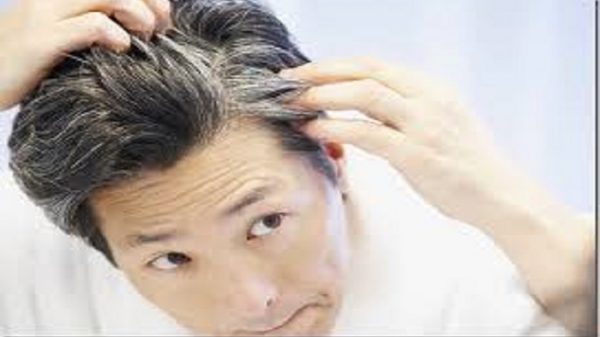Causes of premature greying of hair

- Update Time : Tuesday, March 3, 2020
- 211 Time View

Today, early greying of hair is a common problem. Although this hair issue certainly varies from person to person.
There are many reasons behind premature greying of hair. These include:
Genetic: Early greying can be due to your genes. If your mother or father became grey early, you may too.
Insufficient melanin production: Hair gets its colour from a pigment called melanin. It is produced by melanocyte cells in the hair follicles. Melanocytes endure cumulative damage over the years which eventually leaves them unable to produce melanin. Thus in the absence of melanin, the new hair that grows in has no pigment and it appears grey, white or silver.
Too much exposure to sun: Too much sun exposure can turn your hair brittle, dry and grey. The sun produces UVA and UVB rays which negatively affect your scalp. This damage can result in premature greying of hair.
Toxins and chemicals: Toxins and chemicals used in hair styling products and hair dyes can also damage the natural colour of hair and onset early greying.
Anaemia: Iron creates haemoglobin in your blood cells. Haemoglobin carries oxygen throughout your body. If you are suffering from iron deficiency, known as anaemia, the chances of premature hair greying increase. Eat iron-rich foods like leafy greens, meat, lentils etc to increase your iron intake. At the same time, eat vitamin C-rich foods to enable efficient absorption of iron by the body.
Thyroid: There are two types of thyroid problems – Hypothyroidism and hyperthyroidism. Both are responsible for premature greying. An overactive, as well as an underactive thyroid both, can result in less production of melanin.
Vitiligo: It is a pigmentation disorder in which melanocytes which make pigment are destroyed. In this condition, the hair that grows on the areas affected by vitiligo turns grey or white.
Vitamin B12 deficiency: The deficiency of vitamin B12 can lead to premature greying of hair. Vitamin B12 deficiencies are often concurrent with folic acid and biotin deficiencies. People who are deficient of folic acid and biotin, their hair starts to turn grey soon. You can get this nutrient from dairy products, meat and fortified cereals.
Folic acid deficiency: Folic acid regulates metabolic and DNA functions. Lack of folic acid in the body may lead to grey hair. Eat more leafy greens, citrus fruits, beans and asparagus to prevent and cure this deficiency.
Vitamin D: Vitamin D helps to absorb calcium which is an important mineral to maintain the natural colour of hair. Vitamin D itself affects melanin production in the hair follicles and thus it is important to get it from moderate sun exposure, eggs, fortified foods and fatty fish.
Copper deficiency: Copper plays a significant role in melanin production. Not getting enough copper may lead to premature greying of hair. Peanuts, almonds, mushrooms and lentils are rich in copper. Incorporate these foods in your diet.
Hair that has already gone grey can never be restored to earlier colour. You may only try to save rest of your hair to refrain their natural colour by making a few lifestyle changes.
You can highlight or colour hair to cover the grey. But be cautious! Some people are sensitive to chemicals in dyes. The result could be an itchy or burning scalp.

























